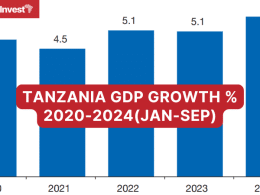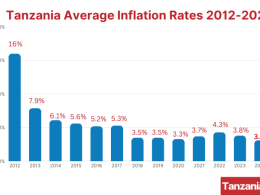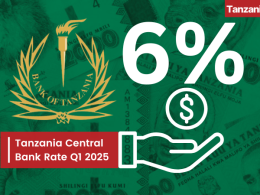In a recent review by Moody’s Investors Service, Tanzania has retained its B1 credit rating, reflecting the country’s robust economic growth and ongoing structural reforms.
The confirmed rating follows a thorough assessment of Tanzania’s economic landscape and governance framework conducted in September 2024.
Tanzania’s B1 rating places it ahead of its East African Community (EAC) counterparts such as Kenya (B3), Rwanda (B2), and Uganda (B2).
According to Moody’s assessment, Tanzania’s stable outlook is attributed to several key factors including maintaining a moderate debt burden and historically high and stable GDP growth rates that bolster its economic resilience.
Additionally, the government’s structural reform agenda is gradually enhancing policy effectiveness and governance, which supports an improved business environment and higher investment levels.
During a recent speech to the Tanzanian Parliament, Finance Minister Mwigulu Nchemba highlighted the significance of this rating, stating that it underscores the government’s commitment to fostering a resilient economy capable of withstanding global economic shocks.
He emphasized that the B1 rating positions Tanzania among the top five economies in Sub-Saharan Africa evaluated by Moody’s, trailing only Botswana (A3), Mauritius (Baa3), Côte d’Ivoire (Ba2), and South Africa (Ba2).
Minister Nchemba remarked that Tanzania also holds a competitive edge within SADC, where it is ranked alongside Namibia at B1.
Nchemba added that Moody’s has indicated that the upward pressure on Tanzania’s rating could arise from continued implementation of reforms that foster private sector-led growth and investment reflecting strategic initiatives aimed at enhancing economic stability and attracting foreign investment.
He also highlighted that Tanzania faces risks associated with a weak institutional framework and low per capita incomes that increase social risks.
However, he remained optimistic about the future stating that while the government recognizes vulnerabilities associated with dependence on rain-fed agriculture and external debts, its commitment to fiscal discipline and investment in social programs will help mitigate these risks.
He reiterated that the government’s focus will remain on improving governance, enhancing revenue generation, and ensuring sustainable economic practices that will ultimately lead to higher living standards for citizens.
Tanzania Ratings
Tanzania’s credit ratings have recently improved, reflecting its economic resilience and growth potential.
In March 2024, Moody’s upgraded Tanzania’s long-term issuer ratings from B2 to B1, changing the outlook to stable.
This upgrade highlights the country’s ability to withstand external shocks and maintain a diversified economic base, supported by conservative fiscal policies and a stable debt burden.
Fitch Ratings also affirmed Tanzania’s rating at B+ with a stable outlook in June 2024, citing strong GDP growth projections of 5.4% for 2024, driven by sectors such as agriculture, mining, and tourism. The agency noted ongoing structural reforms and improved fiscal health as key factors behind this rating.
Despite these positive developments, challenges remain, including high poverty levels and reliance on foreign-currency debt. However, the government’s commitment to strategic projects like the Standard Gauge Railway and the Julius Nyerere Hydropower project is expected to enhance economic performance and investor confidence.










